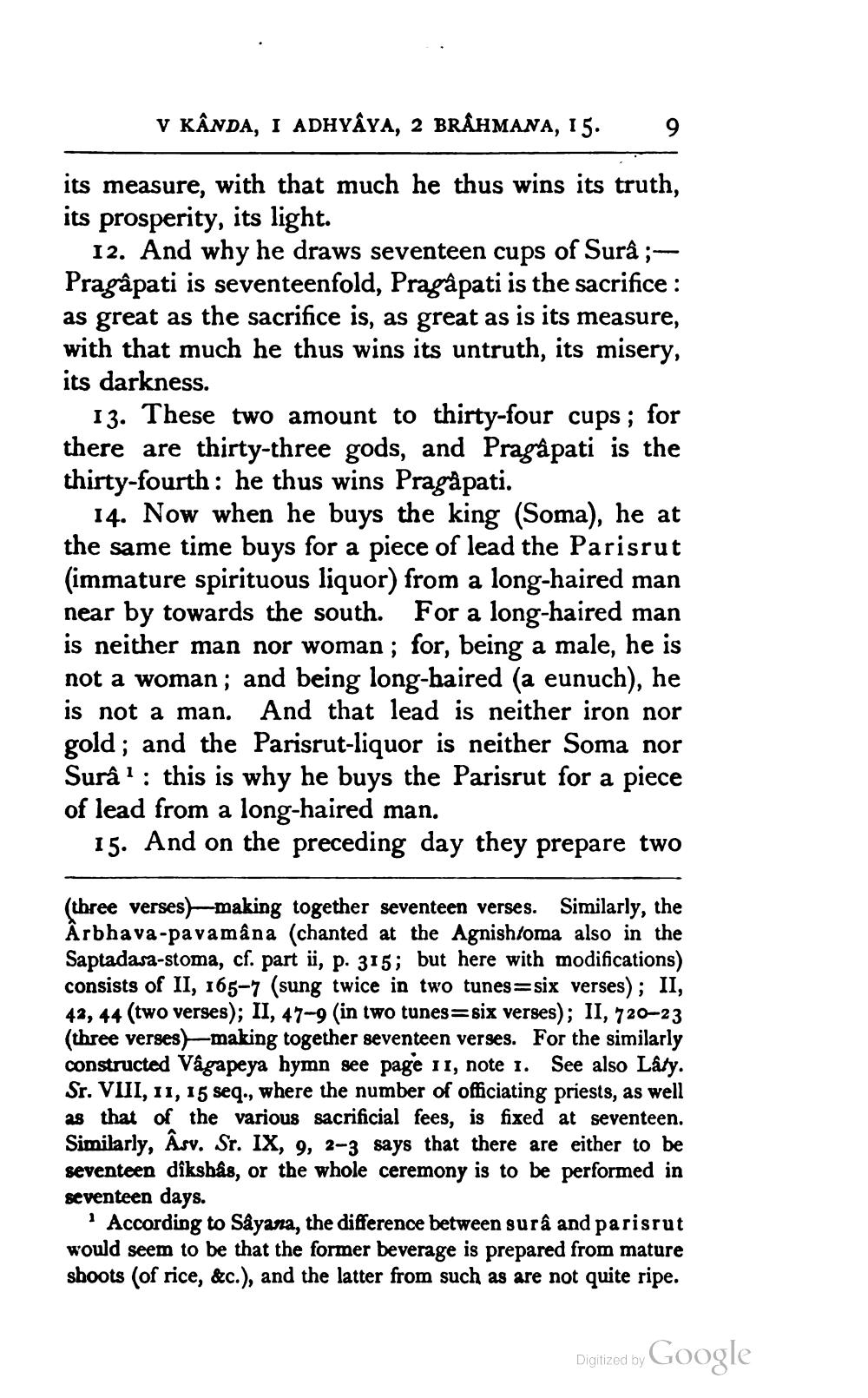________________
V KÂNDA, I ADHYÂYA, 2 BRÂHMANA, 15. 9
its measure, with that much he thus wins its truth, its prosperity, its light.
---
12. And why he draws seventeen cups of Surâ ;— Pragâpati is seventeenfold, Pragâpati is the sacrifice : as great as the sacrifice is, as great as is its measure, with that much he thus wins its untruth, its misery, its darkness.
13. These two amount to thirty-four cups; for there are thirty-three gods, and Pragâpati is the thirty-fourth: he thus wins Pragâpati.
14. Now when he buys the king (Soma), he at the same time buys for a piece of lead the Parisrut (immature spirituous liquor) from a long-haired man near by towards the south. For a long-haired man is neither man nor woman; for, being a male, he is not a woman; and being long-haired (a eunuch), he is not a man. And that lead is neither iron nor gold; and the Parisrut-liquor is neither Soma nor Surâ this is why he buys the Parisrut for a piece of lead from a long-haired man.
15. And on the preceding day they prepare two
(three verses)-making together seventeen verses. Similarly, the Arbhava-pavamâna (chanted at the Agnish/oma also in the Saptadasa-stoma, cf. part ii, p. 315; but here with modifications) consists of II, 165-7 (sung twice in two tunes six verses); II, 42, 44 (two verses); II, 47-9 (in two tunes six verses); II, 720-23 (three verses)-making together seventeen verses. For the similarly constructed Vâgapeya hymn see page 11, note 1. See also Lâty. Sr. VIII, 11, 15 seq., where the number of officiating priests, as well as that of the various sacrificial fees, is fixed at seventeen. Similarly, Asv. Sr. IX, 9, 2-3 says that there are either to be seventeen dikshâs, or the whole ceremony is to be performed in seventeen days.
1According to Sâyana, the difference between surâ and parisrut would seem to be that the former beverage is prepared from mature shoots (of rice, &c.), and the latter from such as are not quite ripe.
Digitized by
Google




